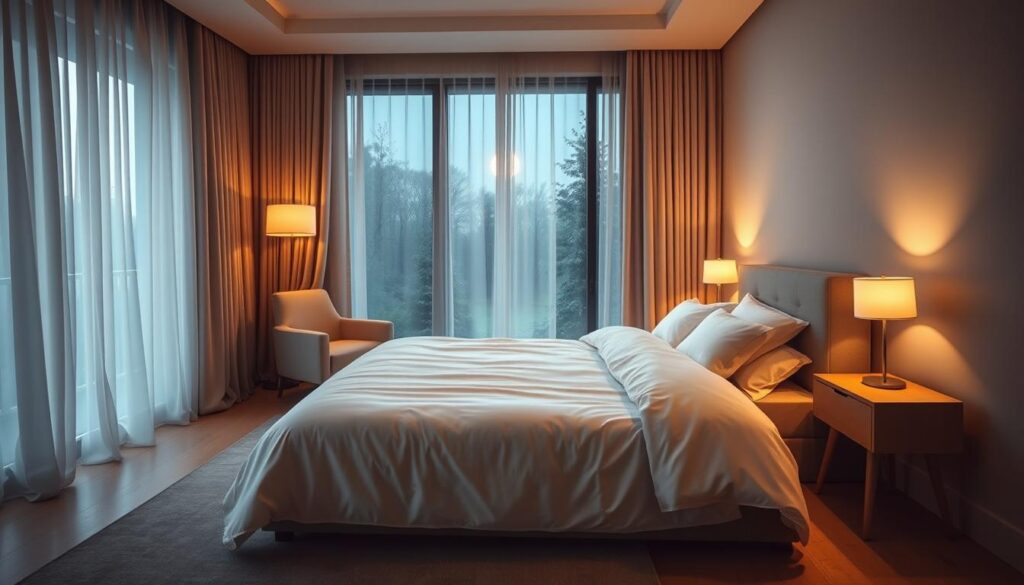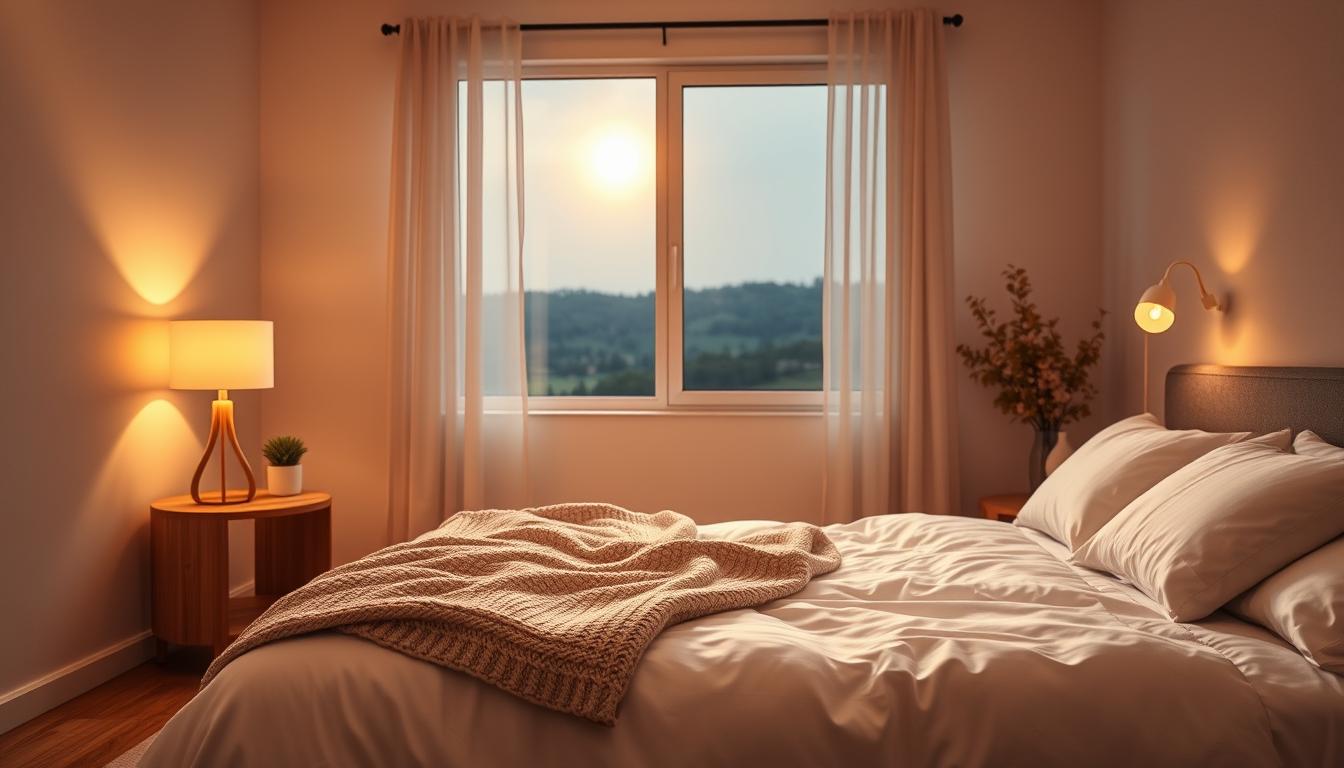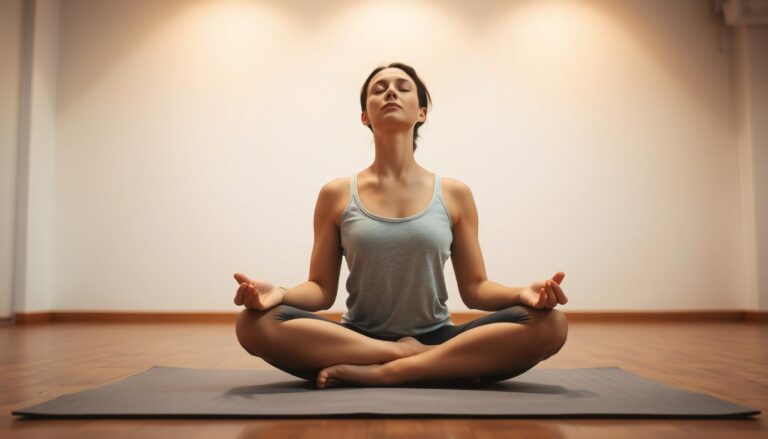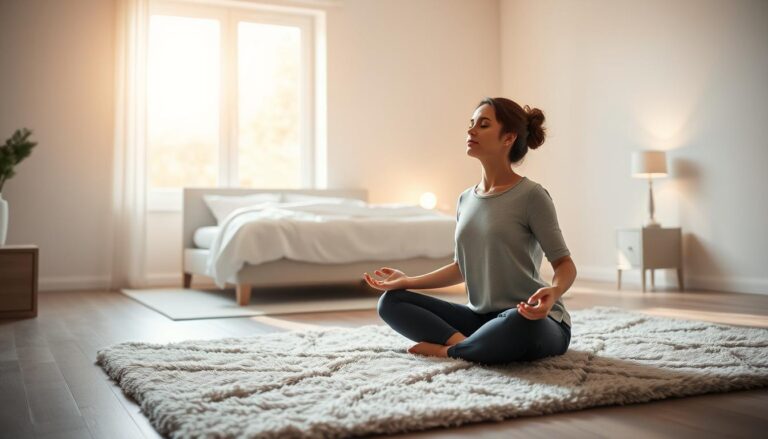Are you tired of feeling exhausted and struggling to perform at your best? What if unlocking the secret to optimal health and wellness was as simple as improving your sleep habits?
Quality sleep is the foundation of overall health. Yet, millions of Americans struggle with sleep-related challenges. Our modern lifestyle often disrupts natural sleep patterns. This leads to decreased cognitive function, weakened immune systems, and increased risk of chronic diseases.
This guide explores critical sleep tips to transform your health and wellness. We’ll dive deep into understanding sleep science, creating the perfect sleep environment, and developing strategies for restorative rest.
Key Takeaways
- Understand the critical role of sleep in maintaining optimal health
- Learn scientifically-backed strategies for better sleep quality
- Discover how sleep impacts cognitive function and immune system
- Explore practical techniques to improve your sleep routine
- Recognize the connection between sleep and overall wellness
Struggling to fall asleep or stay asleep?
Discover a natural way to reset your sleep cycle and wake up refreshed.
Understanding the Science Behind Quality Sleep
Sleep is a fascinating process that’s key to our health and happiness. Our bodies have a complex rhythm that tells us when to be awake and when to rest. Knowing how sleep works can help us sleep better and do better in our daily lives.

The sleep cycle is a complex process that changes throughout the night. Our internal clock, or circadian rhythm, controls these changes. This clock is influenced by light, telling our brain when to be alert or sleepy.
Exploring the Sleep Cycle
Our brain goes through different sleep stages at night. These include light sleep, deep sleep, and REM sleep. Each stage is important for brain recovery, memory, and emotional processing.
Brain Function During Sleep
Sleep is not just rest; it’s active brain recovery. In different stages, our brain does important work. Memory consolidation mainly happens in deep sleep, where memories are stored long-term.
Sleep Architecture Explained
Sleep architecture is the structure of sleep stages. A cycle lasts about 90 minutes and repeats several times. Knowing this can help improve sleep quality and brain function.
Creating the Perfect Sleep Environment

Turning your bedroom into a sleep haven can greatly enhance your sleep quality. The right sleep environment is key to falling asleep fast and sleeping deeply. Focus on the elements that make your bedroom comfortable for sleep.
Temperature is vital for a good sleep environment. Keep your bedroom between 60-67°F for the best sleep. A cooler room tells your body it’s time to sleep, helping you fall asleep quicker and sleep more soundly.
Your bedroom should be dark and quiet. Use blackout curtains to keep out light that can mess with your sleep. White noise machines or earplugs can also help block out noises that might wake you up.
Choosing the right mattress and bedding is important for comfort. Find mattresses that support your body and pillows that keep your neck right. Breathable, soft bedding can greatly improve your sleep experience.
Small changes can make a big difference in your sleep environment. Clear out clutter, use calming colors, and make your bedroom a peaceful place. Remember, your bedroom should only be for sleep and relaxation.
Imagine drifting off effortlessly each night and waking up energized, without the fog or fatigue.
Take control of your sleep patterns now and experience the difference.
Establishing a Consistent Sleep Schedule
Having a reliable sleep schedule is key for good health. It helps your body’s internal clock work better. This leads to better sleep and more energy during the day.
When you stick to a sleep pattern, your body gets ready for sleep. It becomes easier to fall asleep and wake up feeling refreshed.
Crafting Effective Bedtime Routines
Creating a good bedtime routine can change your sleep for the better. Start by setting a sleep schedule that gives you 7-9 hours of sleep each night.
Before bed, dim the lights and avoid screens. Try relaxing activities like reading or stretching. Make your sleep area calm to signal it’s time to sleep.
Addressing Sleep Debt
Sleep debt happens when you don’t get enough sleep. To fix this, focus on getting consistent sleep. Short naps can help, but they can’t replace a full night’s sleep.
Slowly adjust your sleep schedule to get enough rest. This helps pay back your sleep debt.
Weekend Sleep Strategies
Keeping a regular sleep schedule on weekends is tough but important. Try to wake up and go to bed at the same times, even on days off.
Big changes in sleep patterns can mess with your body’s natural rhythm. This makes it harder to sleep well during the week. Small changes can make a big difference in your sleep health.
Diet and Exercise Impact on Sleep Quality
Your diet and exercise are key to good sleep. What you eat affects how well you sleep. Some foods help, while others can mess with your sleep.
Eating foods like bananas, almonds, and warm milk can help you relax. They have magnesium and tryptophan, which help you sleep. But, eating big meals, drinking caffeine, or alcohol before bed can mess with your sleep.
Exercise and sleep are closely linked. Working out regularly helps your body’s clock and lowers stress. Moderate exercise for 30 minutes daily can improve sleep duration and quality. But, doing too much exercise before bed can keep you awake.
When you exercise matters. Working out in the morning or afternoon helps you sleep better at night. Try to do hard workouts at least three hours before bed to relax.
Choosing wisely about what you eat and how you exercise can improve your sleep. Small, steady changes can make a big difference in how well you rest.
Technology and Sleep: Finding the Right Balance
In today’s world, technology and sleep are closely linked. Digital devices change how we relax, but they can also mess with our sleep. It’s important to understand how screens affect our sleep for better rest.
Blue Light Exposure Management
Blue light from screens keeps us awake. It stops our bodies from making melatonin, the sleep hormone. Using blue light filters or special glasses can help your body sleep better.
Digital Wellness Tools for Better Sleep
New tech helps with sleep problems. Sleep apps track how well you sleep, and white noise apps create calm sounds. Meditation apps guide you to relax and sleep well.
Creating Tech-Free Bedtime Zones
Having a tech-free bedtime area helps sleep a lot. Remove devices from your room and start a relaxing evening routine. Cut down on screen time before bed to sleep better.
Digital wellness is not about giving up tech. It’s about using it wisely to improve sleep and health.
Conclusion
Improving your sleep habits can change your life for the better. We’ve looked at many ways to help you sleep better, from learning about sleep to making your bedroom perfect for rest.
Even small changes can greatly improve your sleep. Try one or two new things each day. This could be making your bedroom cozy, limiting screen time, or sticking to a sleep schedule. Each step helps you get closer to better health.
Sleep is essential for your health, not just a luxury. It boosts your brain power, mood, and energy. Remember, building good sleep habits takes time and effort.
Your journey to better sleep starts today. Use these tips, be patient with yourself, and see how better sleep improves your life. Every night is a chance to refresh, recharge, and care for your health.





